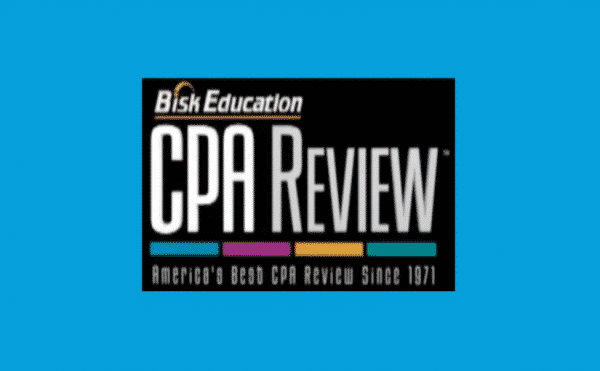
Hi, I'm Jennifer Louis, and in this CPA Review video we're going to talk a little bit more about financial reporting oversight and how that's a critical part of corporate governance. Financial reporting oversight has a lot of important elements to it, including making sure that an entity does properly understand what are the financial reporting risks to our organization.
So the organization needs to have a risk identification process that includes consideration of all the operational processes that impact the financial statement accounts and disclosures. Risk identification and assessment considers things like. Are my entities personnel competent enough and dedicated enough to support our ability to meet these financial reporting objectives and do my information technology, infrastructure, and processes support an entity's ability to meet financial reporting objectives?
And is the organization, has it, has it designed its operations in a way where there are appropriate mechanisms for management to. Deal with risks. So as risk changes and evolves, is there a mechanism in place for them to identify those changing circumstances such that they can modify IT infrastructure, the processes, the training of its people, and other relevant matters in order for them to respond to these risks?
So risk identification is important to make sure that they're looking at all the factors that could create a risk that the financial statements might not be correct. This is going to include both internal and external factors. Things that the organization can control and things that the organization can't control.
So when we talk about internal factors, it's things like. IT systems that are put in place, that, that, that are, that are running and generating and capturing the data that's being put into the financial statements. It's going to be the number of people that you decide to hire in the accounting department.
Those are all things that are directly in the control of the entity itself. But there's also going to be external factors that might create a risk of misstatement in the financial statements, changes in the economy, changes in interest rates, changes in regulations that organizations have to comply with.
Those are things that are outside of the organization's control, but yet they still create circumstances that need to be managed to ensure that financial statements are properly stated. So from a financial reporting risk standpoint, that's why it's so critical for governance being management. Those charged with governance, the board, and other appropriate personnel that they're all looking for.
Identifying these things that could go wrong and then analyzing them through a process that goes through and says, how likely is it that this will have an impact on my financial statements? Even if it does impact my financial statements? To what degree or magnitude would it likely occur? And then D and then.
What they could do is use that information to decide what risks need to be managed, what risks need to have some controls in place to keep it from being a big deal. So, this risk assessment process requires an initial evaluation. An and analysis of risk, but it also requires management to periodically reassess their conclusions, to look for things that have changed that might ultimately need some changes to be made to the internal controls over financial reporting themselves.
So financial reporting risks are the risks that something could go wrong. In the financial reporting information. So financial reporting information is all of the information that is pertinent to the financial statements themselves. So it's all the information that's identified, captured, and used at all levels.
In order to put together your set of financial statements. So it's the actual data that's underlying the financial statements and the financial reporting system makes sure that it's captured completely and accurately and timely. It makes sure that. All transactions and events are put through some sort of mechanism of capturing that data.
So things that are routine and in the ordinary course of business, as well as things that are non-routine in nature, say a related party transaction or something that happens through journal entry only. It doesn't get processed through the system itself. These are all things that you need to make sure that.
All transactions events have some means, whether they're something that's through the formal processing system or outside of the routine processing system to make sure that there is everything that needs to be included in the financial statements is included. This includes things like estimates. So if we have to make an adjusting journal entry to change the allowance for doubtful accounts, then that estimate needs to make sure that that gets recorded into the system.
It includes looking at. Any operating information that is used to develop accounting and financial reporting information. Like it could be your cash management and looking at your collections of, amounts that were, on bills that you sent out to your customers. There's an overlapping degree there.
There's an overlap. In the fact that yes, I need to make sure that what is still receivable that has not been collected yet is shown as an accounts receivable my books. But we also want to know what customers are paying their bills on a timely basis. For us to be able to manage cash flow and decide what customers we really should be looking to sell more products or services to.
So when we talk about financial information, financial reporting information, it is sometimes things that directly. Influence the financial statements. And then it also may include things that are indirectly a part of the financial statements. There need to be policies that are established for reliable financial reporting, and these policies should be communicated throughout the organization to make sure that management's directives are properly being carried out.
On the CPA Exam, people need to know what it is that they should be doing and when they should be doing it so that they are comfortable that they're properly fulfilling management's directives and their objectives that they established with financial reporting. Part of this is going to be the control activities that are built into the day to day processes that are out there.
how do I collect cash on a daily basis and get it in the bank? How do I pay my payroll? How often do I pay it? How do I pay my vendors? how do I book sales? How do I show, that inventory has been relieved after shipments are, are, are made of a particular product. All of those things of whatever happens from day to day.
Business level there is going to be an impact on the financial reporting system as well to get those transactions and events captured into the financial reporting system. So people need to know what their responsibility is and their accountability is for those policies and procedures and management as the one that needs to establish those policies and procedures.
So there is something for people to follow. And it needs to include the timeliness of it. Not just that I want somebody to perform bank recs, but how often do I want an individual to perform bank reconciliations? Do I want them to do it monthly? Do I want them to do it weekly? You know, how often is my expectation for the performance of those procedures?
Other important aspects around policies and procedures for Hernandez reporting is that senior management needs to be involved in the development of these policies and procedures, and as the importance of those policies and procedures increases, the level of oversight and approval of those. Policies and procedures need to increase.
So if I have a board of directors, for example, they're going to be involved in approving any significant accounting policies and procedures that might be material to the financial statements as a whole. So there needs to be somebody that is establishing the policies and procedures and then somebody else that's reviewing and approving it.
Now, who is that? Somebody else? It's generally going to be those charged with governance, whoever that is for an organization. There also needs to be a mechanism to make sure that financial policies and procedures are periodically reviewed for their continued relevance and to make sure that they are adapted for changing conditions and circumstances.
So just to review for financial reporting oversight, we want to make sure that, that the organization is aware of what the financial reporting risks are. We want to make sure that they're aware of how financial reporting information is generated, generated, and captured within the system. And we want to make sure that there's appropriate policies and procedures that are in existence to ensure the reliability of the financial reporting process as a whole.
Is your CPA Review on track for Exam Day?Download the Free NINJA Study Planner.






